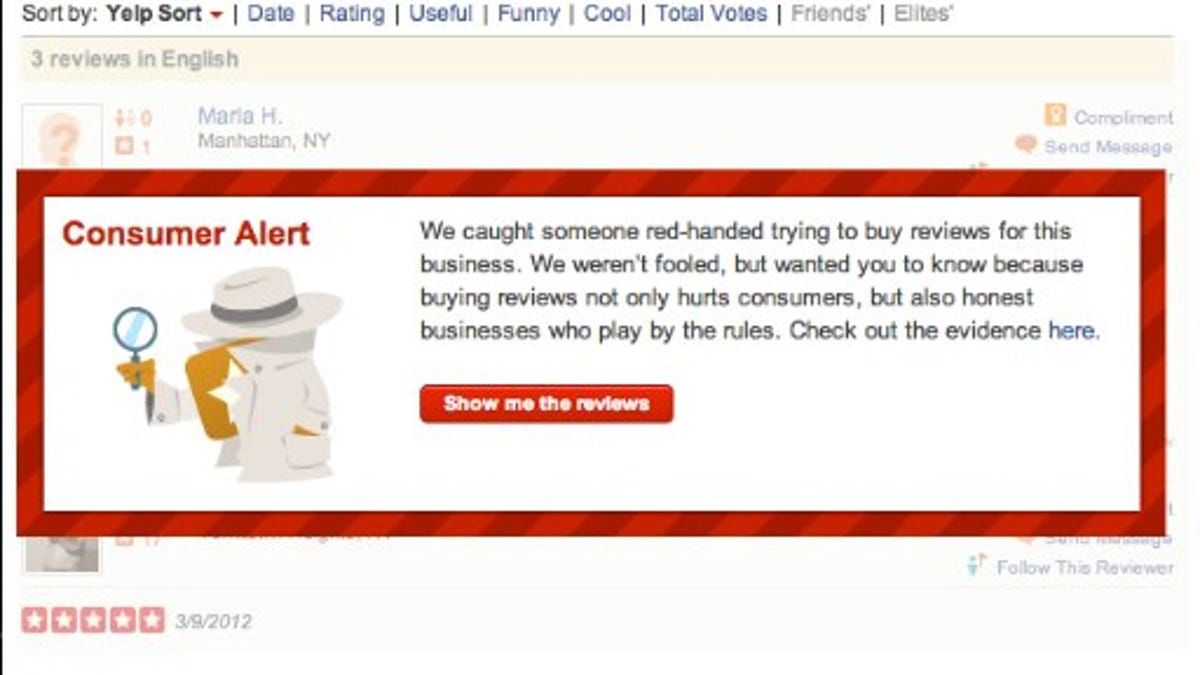Yelp clamps down on paid reviews with new 'consumer alert'
The user-review site says that if it finds that a company is artificially inflating its reviews, it will post a consumer alert to users for a period of 90 days.

Yelp is taking aim at business owners that try to artificially inflate their reviews on the site.
The user-reviews site today announced today that it has launched a new initiative to root out companies that have made "significant attempts to pay for reviews." In the event it finds such attempts, Yelp will post a "consumer alert" on a company posting alerting users to the violation.
"We caught someone red-handed trying to buy reviews for this business," the alert reads. "We weren't fooled, but wanted you to know because buying reviews not only hurts consumers, but also honest businesses who play by the rules."
Yelp goes on to provide a link to the evidence it compiled.
According to Yelp, it will leave the alerts on business pages for 90 days. In addition to launching the alerts today, Yelp said that nine businesses have been hit with the warnings already.
"Why are we doing this? We want to make sure consumers are making informed decisions," Yelp wrote in today's blog post. "Yelp's automated review filter is working around the clock to flag these types of biased reviews, and we believe that you deserve the right to know when this type of activity is taking place behind the scenes."
Aside from limiting paid reviews, Yelp says that it will alert customers when a company has too many reviews from the same IP address. Although that might not always indicate foul play, it can be an indicator of trouble.
Yelp's reviews have often been the subject of debate. Back in 2010, the company was forced to eliminate its "favorite review" option. Favorite review allowed companies to buy for the right to highlight a specific review in its listing.
Yelp's automated review filter also caught fire after it eliminated both fake and legitimate reviews. Also in 2010, Yelp provided a page where users could find out which reviews were removed to ensure only fake or malicious items were kicked off a page.
Both the favorite review and the overzealous filter caught the ire of critics who charged Yelp with artificially modifying pages to help monetize its site. The company was even hit with a lawsuit over it. Yelp CEO Jeremy Stoppleman, however, denied those claims, saying that they amounted to bunk.
"There has been a long history of people accusing Yelp of monkeying around with reviews in exchange for money," Stoppelman wrote at the time. "The allegations are disappointing, not only because they are false, but because they ignore empirical evidence in favor of conspiracy theories."

